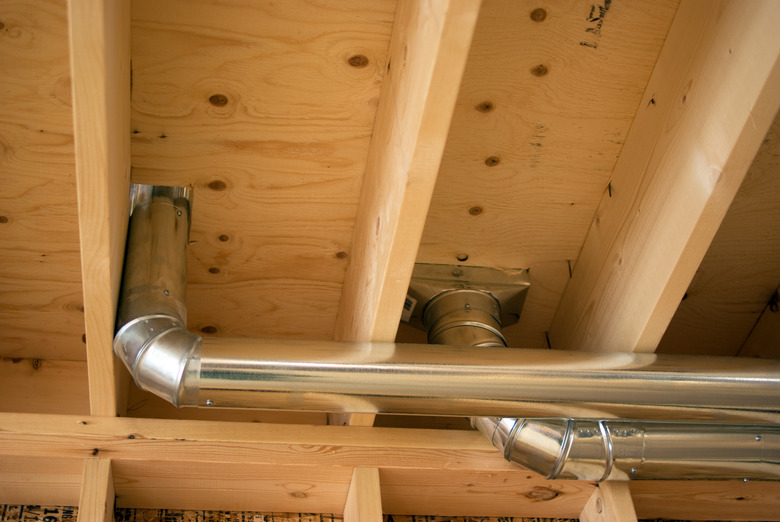How To Reduce Airflow Duct Noise
We may receive a commission on purchases made from links.
Do you hear knocking, banging, whistling, and other noises when you crank up the heat or air? Air duct noise is annoying, but it can also indicate an issue that makes your HVAC system less efficient. Your furnace won't run silently even when everything is in perfect condition, but you can make some changes to your ductwork and other parts of the HVAC system to quiet things.
Open Vents and Dampers
Open Vents and Dampers
Your HVAC system has a series of ducts and vents or registers throughout your home that carry the heated or cooled air where you want it. Many systems also have dampers in the ducts that can control airflow through a particular duct.
Some people close dampers leading to rooms they don't use often or close the registers in those rooms to save energy. However, this can have a negative effect on the overall system. Shutting dampers or registers can throw off the balance of the system and create more air pressure in certain parts. The pressure can cause strange noises and put extra pressure on your furnace, which can cause it to wear out quicker than normal.
Check the dampers in your ductwork and open them all. The dampers are usually on the main ducts leading away from the furnace within a few feet of the unit. Open all of the registers throughout your home and make sure nothing is in front of the registers to block the airflow. This allows the air to flow freely through the system and can reduce air duct noise.
Clean Ducts and Filters
Clean Ducts and Filters
Dirt buildup in ductwork or furnace filters affects the airflow and can make things noisy. Having your ducts cleaned can help with air duct noise if it's due to a buildup of dust, pet hair, and other debris in the ductwork. Regularly changing your air filters also helps keep the system's airflow at normal levels. When the air filter gets clogged, it reduces airflow, which can increase system noises and make your furnace work harder.
Seal and Insulate Air Ducts
Seal and Insulate Air Ducts
Ducts with gaps or poor connections can make more noise than properly sealed and insulated ducts. Inspect the visible portions of your ductwork to look for issues. Repair any damaged sections.
You can also seal your ductwork at all of the joints to reduce air loss and quiet whistling and blowing sounds. Sealing them with duct mastic or HVAC foil tape can help cut down on pressure differences and ease the sounds that come from expanding and contracting when hot air goes through cold ducts.
Once they're sealed, add insulation around the outside of your ducts. The insulation can reduce expansion and contraction, and it can dampen some of the noises coming from the ductwork. It also reduces energy loss from the ductwork, which can help your system operate more efficiently.
Fix Flexible Ductwork
Fix Flexible Ductwork
If your system includes any flexible ductwork, it could be to blame for the air duct noise. Improper installation can make the flexible ductwork sag or bend, which slows down the airflow. This can create noises while your air conditioning or heat runs. Check flexible ductwork to make sure there aren't any bends or sagging. You might need to have an HVAC professional reinstall those sections correctly to reduce noises and improve airflow.
Investigate Other Causes
Investigate Other Causes
If these fixes don't reduce the air duct noise in your home, you could have a bigger issue with the system. Potential causes of noise and a reduction in how well the system works can come from improper duct sizing, incorrect fan speed, registers that are too small, or lack of regular maintenance. An HVAC professional can evaluate your system to ensure it's sized properly with ductwork that's correct for the system.
